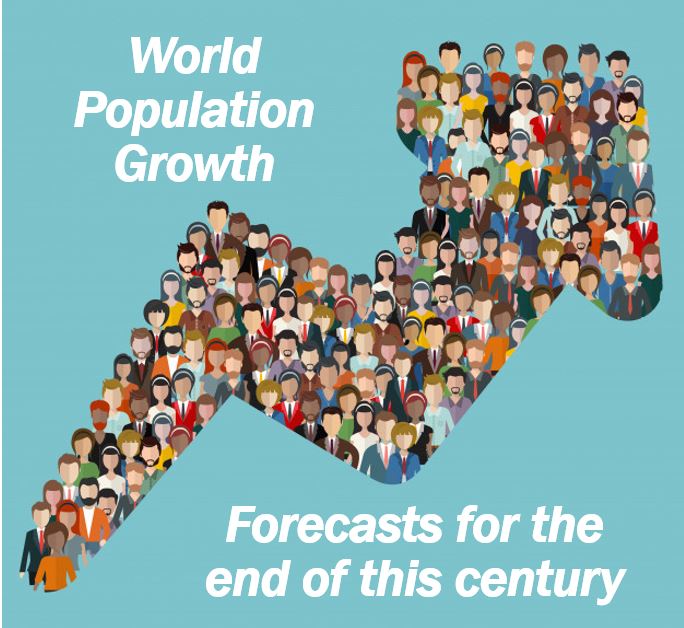Already, there are more than 7 billion people on Earth. Although it’s going to get more crowded for a time, resource limitations will soon cause growth to level off.
For the first time in modern history, the world’s population will essentially stop growing by the end of this century. By 2100, demographers predict that longer life expectancies will be offset falling fertility rates. World population is expected to level off just shy of 11 billion.

What does that mean for our future? That’s the big, multi-billion-person question.
The World in 2100
By the end of the 21st century, people all over the world will be:
1. Having fewer kids
Just about the only area of the world where fertility rates are expected to remain high is Sub-Saharan Africa. Even with Africa dragging up the average, fertility rates are expected to drop to 1.5 births per woman by 2100, down from 2.5 in the present.
Why will women have fewer children? Generally speaking, higher levels of education, more household income, and more opportunities for women outside of the home.
As birth control has become more available and the planet has industrialized, more women have joined the workforce. The result has been a steady increase in the age at which women first have children.
2. Living longer
According to Pew Research Center, the world’s median age will increase to 42 in 2100, up from the current age of 31, and from 24 in 1950. But what does that mean for society?
Economically speaking, it means working people will have to support a growing number of retirees. This includes contributing more to retirement benefit programs, and spending more time caring for aging relatives.
Changes will be more pronounced at the upper end of the spectrum. The number of people over 80 years old is expected to increase to 909 million by 2050 — almost seven times its value in 2017. Expect aging populations to strain healthcare systems around the world.
3. Migrating more frequently
In Europe and North America, in particular, much of this century’s population growth will come from migration from the rest of the world. People from low- and middle-income countries tend to gravitate to high-income countries.
The Pew study projects that the U.S. immigrant population will increase by around 85 million over the next 80 years. By 2065, one in three Americans is likely to be an immigrant or have immigrant parents. That demographic shift will morph the electorate, raise education levels, and change the nation’s birth patterns.
Climate change is likely to be a chief cause of migration. Outside of the U.S., the Syrian refugee crisis — which studies suggest was fueled by droughts and agricultural issues — led to quite a large increase in migrants to Turkey, Lebanon, and Jordan. Immigration will increase political tensions around the world.
4. Competing for fewer resources
Even though the world population growth is expected to slow or stop in the next century, significant growth will still occur in nine countries, including: India, Nigeria, the Democratic Republic of the Congo, Pakistan, Ethiopia, the United Republic of Tanzania, the United States of America, Uganda and Indonesia.
Because growth will be focused in poorer countries, resource shortages are likely. Poverty, hunger, and gender inequality are likely to worsen in those areas.
Compounding the issue is that more people means more greenhouse gas emissions. Climate change is likely to make it more difficult to grow food in many areas of the world.
How Can You Help?
Population growth is slowing down for reasons new to society, such as decreased fertility rates and the changing climate. With those changes come new challenges.
The question is, how can we as a planet ensure those people are treated as beneficial rather than burdensome? The solution is working with them to create self-sufficiency.
Be deliberate with an online calendar and schedule specific time in your week to contribute. You can contribute in multiple ways: Sponsor nutritional education efforts. Empower women. Encourage good stewardship of natural resources. Eat in sustainable ways. Pitch in, and you can make a difference.
______________________________________________________________
Interesting related article: “What is Demography?“
